First Sale Stories: Yasmine Galenorn, "Ghost of a Chance," "Witchling"
Lynda: What’s the name of your first book?
Yasmine: Well, technically, my first published book was "Trancing The Witch’s Wheel," a nonfiction meditation book. My first published novel was "Ghost of a Chance," the first in my paranormal Chintz ‘n China Mystery Series, but my first published paranormal/urban fantasy is "Witchling," the first in my Sisters of the Moon series. ~grins~ If you want to know the name of the very first book I wrote, but which lingers in the back of my closet, it was "Tales of the Fey Queen." From the very beginning, I was focused on fantasy/SF/paranormal.
Lynda: When was it published?
Yasmine: "Witchling" just came out—the official release date was October 3, 2006. Yay!
Lynda: Which publishing house?
Yasmine: Berkley, mass-market. It’s classified as paranormal romance so that’s probably where you’ll find it on the shelves, though it’s really more urban fantasy than romance.
Lynda: What’s it about?
Yasmine: Here’s the official “blurb” I wrote for my site, which pretty much sums up the premise:
Meet the D’Artigo Sisters—three half human, half-Faerie, wild and sexy members of the OIA—the Otherworld Intelligence Agency. Camille, a witch, Delilah, a werecat, and Menolly, an acrobat extraordinaire turned vampire, are sent Earthside to keep them out of trouble by their superiors, who consider the girls nothing but a bunch of bumbling half-breeds. But the girls soon find themselves smack in the middle of Demon-Central when Shadow Wing, the leader of the Subterranean Realms, decides to attempt a coup on both Earth and Otherworld.
From their home in a seedy suburb of Seattle, the sisters must use every ounce of erratic power they have to thwart the havoc about to unfold. Together with Camille's lust-crazed and non-human boyfriends—Trillian and Morio, an FBH (full-blood-human) detective named Chase Johnson who has a penchant for spicy beef tacos and wild women, a gorgeous hunk of dragon flesh named Smoky, Iris the house sprite, and Maggie--their baby calico gargoyle, they must use all of their collective talents to prevent the demons from taking over as the three sisters attempt to save two worlds, one monster at a time.
In this first book, the sisters take on a Degath Squad—a trio of Hell Scouts, who are searching for the first spirit seal. Their fellow operative Jocko, a vertically-challenged giant, has been murdered and this leads them into the discovery that Shadow Wing is attempting to break through the portals and take over both Earth and Otherworld (OW).
Lynda: What was the inspiration for the book?
Yasmine: You would ask that! Uh….my own warped imagination? Let’s just say, the sisters broke into my mind one night and wouldn’t leave me alone. My imagination is very vivid and it just takes off on tangents at times. I was thinking about where I wanted to turn next with my career (I have two other series going right now—a paranormal mystery series, The Chintz ‘n China Series, and a chicklit cozy series—The Bath & Body Series. I write the B/B series under the name of India Ink, and both are from Berkley). Anyway, I’ve been gearing up to turn my career in the direction I’ve always wanted it to go and as I rounded the corner in my thoughts, I ran smack up against the D’Artigo sisters. They were there, waiting for me to discover them.
Lynda: Is it part of a series?
Yasmine: Yes, one I hope that will last a long time.
Lynda: What do you like most about your main characters?
Yasmine: The D’Artigo sisters have a mixed parentage. Their mother was human, their father one of the Fae. As a result, their natural gifts and attributes get cross-circuited at times. They belong to the OIA—the Otherworld Intelligence Agency. They aren’t the best of operatives, but they do try. Their father belongs to a branch of the OIA known as the Guard Des’Estar—more military than intelligence, and their mother died years ago from a fall off of a horse. The girls lived in Otherworld (which branched off from Earth thousands of years ago, and which we commonly call Faerie Land), until their superiors decided to send them Earthside to get them out of the way.
Camille: Camille’s sexual, sensual, and picky about her lovers. She’s snarky, irreverent, playful, intelligent, a gurly-gurl, and yet she will do whatever it takes to protect her loved ones. She’s a witch, although her magic fritzes out at all the wrong times. She’s not squeamish. I love the fact that Camille turned out to be so cocky and yet she’s fun, she can turn on a dime, be talking makeup one minute and the next, be fighting demons without worrying about how her hair’s going to look.
Delilah: Delilah’s kick-ass, and yet she’s vulnerable. She’s insecure about herself, yet not angsty. Delilah’s always been treated like the baby of the family even though she’s the middle child and she’s trying to break out of that role. She wants to be seen as competent and intelligent, and not be brushed off as naïve. She tends to be a lot smarter than her sisters give her credit for. Delilah’s a werecat—she turns into a golden tabby but she can’t always control when she changes shape.
Menolly: Now Menolly’s a vampire, but she’s relatively new at it. She’s trying to hold on to what vestiges of humanity/Fae she has left, and refuses to succumb to the more demonic aspects of her vampirism (in my world, there are greater and lesser vampires, both are considered demons, but some are less troublesome than others). Menolly was an incredible acrobat, but her skills failed her at a crucial moment (that mixed blood problem again), and she fell into the hands of the Elwing Blood Clan—the rogue vampires on whom she was spying at the time. They tortured her, then turned her into a vampire for revenge, thinking she’d go back and wreak havoc on the OIA before they caught on. Menolly managed to retain a few shreds of sanity until the OIA could catch her and help her through months of intensive treatment. She’s a vampire, yes, but she’s gained control over most of her impulses. She’s mad as hell about it, but not angsty, and she mainly feeds on the scum of society. I like the fact that Menolly took a bad situation and is making the best of it, she refuses to give in to the abuse heaped on her by others and she’s bound determined to make a new life (un-life?) for herself.
Lynda: What’s your favorite aspect of the book?
Yasmine: I suppose the fact that I’ve just taken the boundaries and thrown them out the window. The book is fantasy, paranormal, sensual, mystery, suspense, horror, and chicklit all rolled into one. I’m ignoring the rules in favor of creating an offbeat universe that I hope will appeal to readers who want something different and out of the ordinary. My editor gave me leeway with it—she said, “Take it over the top,” and I did.
Lynda:How long have you been writing fiction?
Yasmine: Since before I could print my name. Seriously, I knew I wanted to be a writer when I was three years old and I’ve been making up stories ever since. I have seven novels in the closet from before I sold my first book, which was in 1996. I sold eight nonfiction metaphysical books between 1996-2000. After that, I burnt out on NF and went back to my first love—fiction—and ended up finding an agent and getting my first fiction contracts for the Chintz ‘n China series in 2002.
Lynda: Is this your first paranormal manuscript?
Yasmine: No, my first paranormal book-length manuscripts are sitting in the closet (literally) in a plastic tub, never to see the light of day. My first published novel was "Ghost of a Chance," a paranormal mystery and the first Chintz ‘n China book.
Lynda: Is paranormal your main focus?
Yasmine: Yes, I love it and when I write a book without that focus, it doesn’t feel complete. I’m very proud of my Bath and Body series and I do a good job on the novels, but the series just doesn’t satisfy that need for writing about the paranormal/supernatural side of life.
Lynda: What attracts you about the paranormal characters you write about?
Yasmine: To me, the supernatural, or paranormal, is a part of life, not just a part of fiction. Fantasy takes some of the situations/beliefs to the extreme, but I firmly believe there are far more aspects to life than we can see or touch and my characters explore the possibilities (even those vastly improbable possibilities) in ways that we may not be able to. There’s a quote that I absolutely love from Ursula Le Guin, it’s become part of my belief system. In her essay titled “Why Are Americans Afraid of Dragons,” she says, “Those who refuse to listen to dragons are probably doomed to spend their lives acting out the nightmares of politicians. We like to think we live in daylight, but half the world is always dark; and fantasy, like poetry, speaks the language of the night.” That quote has stuck with me ever since I read it, years ago, and pretty much sums up my attraction to the supernatural side of life.
Lynda: How long did it take to sell your book, from the time you finished your manuscript?
Yasmine: Well, "Witchling" was already contracted before I wrote it—I received a three book contract for the series on submitting a proposal and a sample chapter of the first book.
Lynda: Did you have an agent when you sold your first book?
Yasmine: Not for my nonfiction, but for my fiction—yes.
Lynda: Do you recommend that a pre-published writer focus on finding an agent first, or do you think it’s OK to submit directly to the publisher?
Yasmine: To be honest, it depends on what genre you’re writing. There are still publishers who accept over-the-transom manuscripts, but you will vastly increase your chances if you find an agent first. However, remember that finding an agent is hard work. For both publisher AND agent, do your research, polish your queries until they shine, polish your sample chapters until they sparkle. Pay attention to the guidelines and don’t think you’ll be the exception. If you ignore the rules, you increase your chances that they’ll just toss it on the reject pile. And don’t let rejections get you down. It takes time to pay your dues in the business, and each rejection just proves you’re trying. Writing is a career that requires skill, talent, and patience. Hone the first, do what you can to nurture the second, and cultivate the third.
Lynda: Thinking about the notion of “It’s always darkest before the dawn,” what was the lowest point in the process for you? Was there a time you almost gave up?
Yasmine: There was only one time I reached that point, and it wasn’t because of rejections. When I was with my ex, he was jealous of the time I gave to writing and kept telling me, “If you become a success, I’ll have to leave you.” I was trying to save my (then) marriage, which was insane since my ex was an abusive jerk. Anyway, I threw out two complete book manuscripts and a whole bunch of my short stories. I tried to stop writing, but I couldn’t. It wasn’t long after that before he became physically abusive in addition to the emotional abuse and I decided I’d had enough. Nine years was nine years too many. Throwing away my work is one of my few regrets in my career—that I valued his insecurity over my own needs and goals and dreams. I vowed never to compromise my vision again, for anybody, and I never have. My current husband, Samwise, is as supportive as I could ever hope for—it’s a wonderful feeling.
Lynda: You don’t have to mention numbers, but did you get a nice advance?
Yasmine: You know, one thing most aspiring writers need to realize is that it’s going to take time to build your career, and you aren’t going to get rich off of it—not for awhile, anyway. I know a number of authors who do make a comfortable living, and some who make more than that, but building to that level takes awhile, and you have to earn out those advances before you receive royalties. My advances are more than some authors get, less than others.
Lynda: What was the process of revisions/rewrites like?
Yasmine: By now, I’m used to revisions/rewrites. "Witchling" is my eighth published novel. When I wrote "Ghost of a Chance," I went through six rewrites before finding an agent, and then one thorough revision with my editor. When I turned in "Witchling," it was my second draft, and then editor/revisions was the third. My writing is getting tighter as I go along, and with each book, the revision process becomes easier.
I don’t mind revisions, and I don’t care how strong the author is, there are always things you don’t see because you’re too close to the manuscript. I will never be one of those authors who demands my books go ‘as is’…as long as I can work with a good editor, I’m more than happy to have a second opinion and make changes to ensure the book is stronger.
Lynda: Did your agent suggest changes?
Yasmine: No, she doesn’t make suggestions on the actual manuscript—at least for me. Either the book is strong enough to send off, or it’s not. And at this point, since my editor at Berkley has edited all of my novels, I work with her on all of the editorial issues.
Lynda: What was it like, working with the editor at your publishing house?
Yasmine: I adore my editor. She’s truly a visionary goddess-send. She has helped me get out of the linear mindset I can get in at times, and look at my work with a new perception. I value her input and welcome it, and I hope she stays my editor for a long, long time! I’ve also learned the value of being cooperative. If her suggestions don’t compromise the plot or the style of my book, then I make them. I pick and choose my battles and if I object to something, she knows I’m serious about it because I refuse to quibble over stuff that doesn’t really matter. But—along the same line—if I do have a serious objection to a change, I have to back it up. There has to be a good reason other than, “I just don’t wanna…” She’s helped me really think about what I’m trying to do with my writing, and that’s a good thing.
Lynda: Do you have any words of wisdom for us regarding rewrites/revisions?
Yasmine: Yes—realize that your words are not set in stone. They aren’t handed down by divine intervention. Be willing to listen to professional advice. When we first start writing (and I was no exception), we’re in love with our own words and we tend to bristle when any changes are suggested. Get over it, if you want to be published, because the editor will request changes and you have to be willing to make them. Pick and choose your battles, don’t sweat the small stuff. Develop a thick skin. Revision is a process of honing the work, of refining it—and every book can use a good editor, and I’m not talking about your mother or your best friend. Find a good critique partner who will give you praise for the good parts, but who will bluntly tell you when something doesn’t work.
Lynda: Were there any surprises for you about the contract you signed?
Yasmine: For my fiction, I don’t know. Since I have an agent, by the time I get the contract, changes have been made. I can tell you that when I saw the length and scope of the contract—especially with multi-book contracts—I was so glad I had an agent! The legalese is an incredible tangle. Seriously, if you don’t have an agent and you are offered a contract, don’t try to fathom it out yourself—good gods, you could get squashed. Get yourself to a literary lawyer (not just a regular lawyer) and pay the money for them to look it over. It will be worth it in the long run.
Lynda: Do you get a lot of help marketing your book, or do you have to do it yourself?
Yasmine: There’s a myth that the minute you get a contract the publisher will bestow upon you massive amounts of promo. Take a moment to wince, then get over it, get your butt in gear, and promote like crazy. Seriously—the best you’re likely to get from publishers—unless you are the exception to the rule or until your books really start selling—is a handful of ARCs sent out to reviewers. So plan ahead, buy books on promoting your book, (or check them out from the library), if you have extra cash, sink it into promo work—but do it wisely. There are a lot of ways to throw away money that won’t bring about return. I’m still learning the ins-and-outs of marketing, but I’m a lot more savvy than I was a couple years ago. You have to drill this into your head: the bottom line is that if your books don’t earn out their advance, eventually your contracts are going to dry up. Period. If the book doesn’t sell, you won’t be offered more contracts by the publisher. And if you want to be a career writer, you—and the publisher--have to make money off your books. Not very romantic, but a reality check.
Lynda: What’s your best marketing advice?
Yasmine: The best promotion is word-of-mouth by excited readers, so write a damned good book. After that:
One: get a website up. Don’t let it go stale, and give the reader more than just a blurb about your book. There’s obnoxious promotion and then there’s fun promotion. Include extras that can’t be found in your books.
Two: networking. There’s a fine art to networking. If you don’t like the people you’re looking to for help, why should they help you? Form business friendships with other authors and find a personal side to that friendship. Conferences are good—you can meet both readers and other authors, but you need to pick and choose the best ones for your money because they can be expensive. Advertising by writing interesting articles for magazines or websites is another way to get your name out there and yet not be just all “buy my book!”
Three: promotional companies—when you can’t afford a private publicist, promotional companies like Romance Designs are very helpful. Most are internet based—I go through RD for promotion, although I do my own website work and host it on a private company—but you can also find snail mail promo opportunities. Romantic Times Magazine has special mailings you can take advantage of at a reasonable cost.
Four: signings, lectures, etc. These are good. Don’t expect to sell a ton of books, but it’s a fun way to meet readers and to interact and give your work a personal touch.
Lynda: Did you have input about your cover?
Yasmine: Ha! That’s a dream. ~grins~ Most authors don’t…so don’t expect it. About the best you can usually expect from the NY publishing scene until you’re a big-name author is to be asked for suggestions before the art meeting. A few months later, you see the cover. Then you either clap your hands in glee, shrug and say ‘Eh…could be worse,” or cry. Whatever the case, there’s very little you can do about it by then.
Lynda: Have you done any book signings? If so, what were they like?
Yasmine: Oh yeah, many over the years. Some have been great, others have been horrendous. Some caveats: Don’t be surprised if half the people you know who say they’ll show up don’t. That’s okay—people have schedules and sometimes they forget. Don’t yell at them, do you always go to every event you say you’re going to?
There will be people who show up, stare at your book, turn around and walk away. Before they turn, engage them in conversation. Offer them a chocolate (yes, take chocolates or cookies or something—it’s just a nice touch). If they show interest, talk them up—tell them what you loved about writing your book. Tell them what books you like. Be personable. It’s the polite thing to do.
You might actually get some fans who show up who LOVE your book, and they may not be the people you expect to see! Be nice to them—even if they’re wearing a tee-shirt with a slogan that makes you cringe. They came out to show their appreciation and that’s a compliment to you. If you don’t have a long line, take the time to chat for a bit—it’s fun to meet new people, and you won’t come off as ‘Ms. Bitchy Author Who Doesn’t Want to Say Hello.’ I’ve had a number of people at my signings tell me how surprised they were, that I was so much nicer than the last signing they went to where the author barely mumbled hello. That always surprises me. Signings can be stressful, yes, but if someone makes the effort to drive to a store to get my autograph and they’ve bought my book, I feel they deserve more than a “thanks, see ya later” brush off.
Accept that maybe nobody will show up. That’s okay, it happens. Don’t blame the bookstore owner, don’t feel too embarrassed. All sorts of factors come into play: there may be a some big event going on, or the weather may be so bad nobody wants to go out, or it may be summer and everybody’s at the beach. Be courteous, chat with people who are in there, chat with the owners of the store, thank them for their time. Even if nobody shows up, if you’re friendly and courteous and the owner of the store likes your work, they’ll most likely hand-sell it to people who come in later.
Lynda: If you could go back and do something differently, what would that be?
Yasmine: I’d do more promotion myself. I wouldn’t wait for the publisher to get behind me. I’d also find a good critique partner years and years ago. And most importantly: I’d quit trying to write the way I thought I “should” be writing, and I’d pay more attention to my own voice and style and cultivate it earlier.
Lynda: What are your writing plans for the future?
Yasmine: I’d like to see this new series fly and expand on it beyond the initial three books. There are so many more books I want to write. I suppose, I just want to keep writing, increase my reading audience, and enjoy life as much as I can.
Lynda: What advice would you give to all the pre-published writers out there?
Yasmine: If you’re an aspiring author: learn the craft, be willing to pay your dues—don’t expect to hit the mark with your first book because it usually doesn’t happen. Don’t be afraid of rejection and don’t take it personally. Learn from critiques, and don’t bristle at suggestions. Write according to your voice and style, not according to what you think you “should” be writing. And most importantly: don’t quit. I cannot guarantee you’ll succeed—not everyone who thinks they can write a book actually has the talent or skill to do so. However, if you give up and quit, I guarantee, you will fail.
Lynda: How can readers find out more about you?
Yasmine: Through my website: Galenorn En/Visions (www.galenorn.com). There, you can sign up for my update letters, my reader forums, and find out more about all of my books.
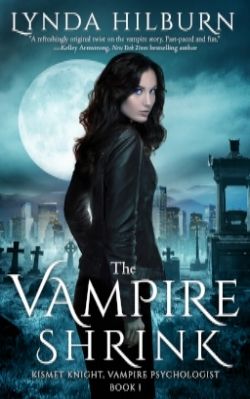
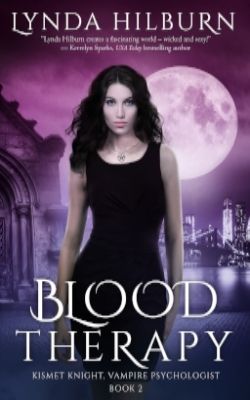
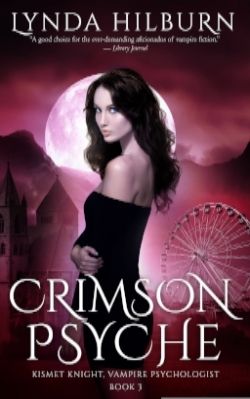
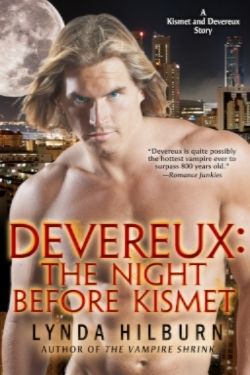
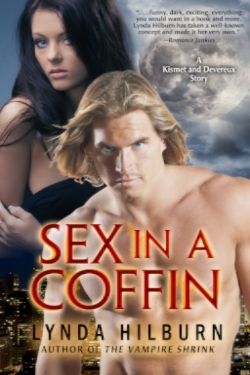
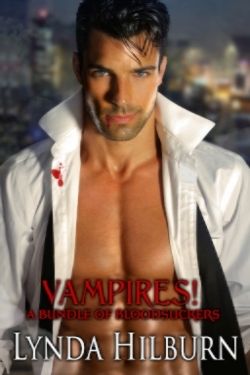
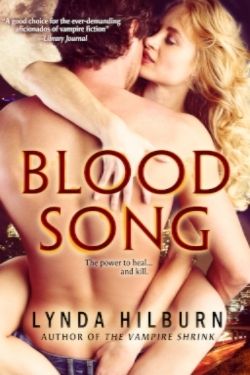
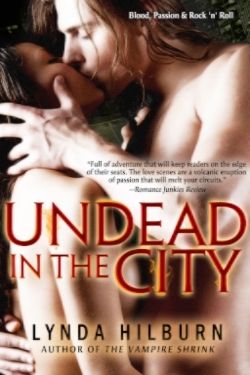
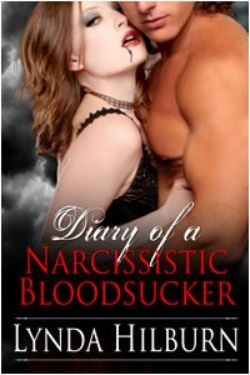
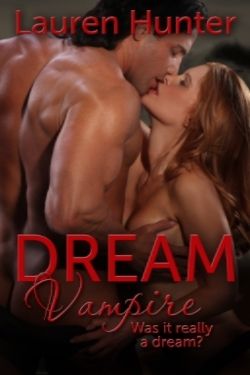
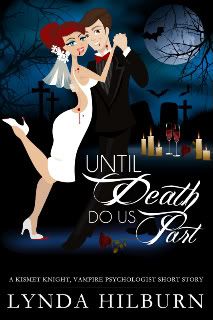
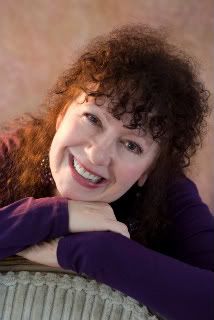
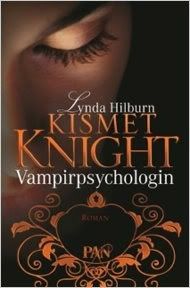
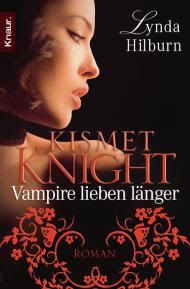
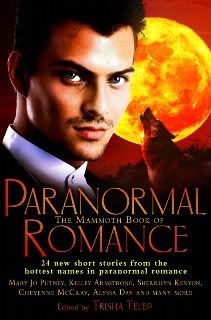
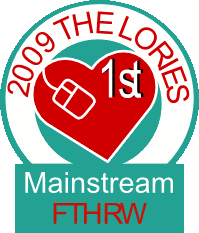




1 Comments:
Well I don't know if this post will ever be read since the blog is over two years old but I'm posting anyway.
I really enjoyed this interview. I love to read and discovered I love to write and have decided to try to become published. As I am just starting out with 3 short novella's and a start at my first novel writing attempt and with no agent, not editor, no publisist and not critiquer, I found this extremely helpful. And I really enjoy your witchling series about the sisters
Post a Comment
<< Home